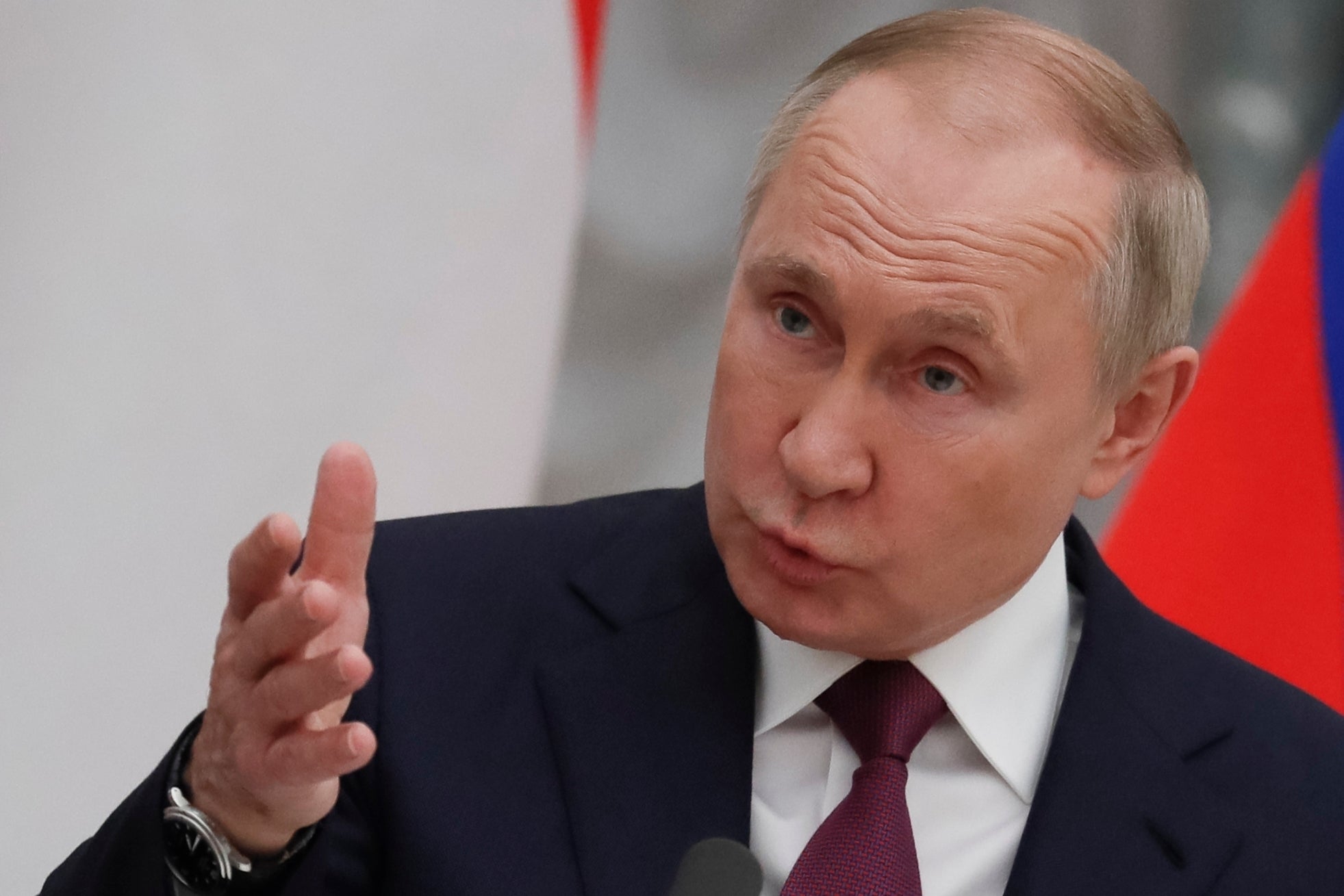France's Macron to visit Russia, Ukraine in mediation trip
French President Emmanuel Macron will head to Moscow and Kyiv next week as part of his push to try to deter Russian President Vladimir Putin from launching an invasion of Ukraine

Your support helps us to tell the story
From reproductive rights to climate change to Big Tech, The Independent is on the ground when the story is developing. Whether it's investigating the financials of Elon Musk's pro-Trump PAC or producing our latest documentary, 'The A Word', which shines a light on the American women fighting for reproductive rights, we know how important it is to parse out the facts from the messaging.
At such a critical moment in US history, we need reporters on the ground. Your donation allows us to keep sending journalists to speak to both sides of the story.
The Independent is trusted by Americans across the entire political spectrum. And unlike many other quality news outlets, we choose not to lock Americans out of our reporting and analysis with paywalls. We believe quality journalism should be available to everyone, paid for by those who can afford it.
Your support makes all the difference.French President Emmanuel Macron will head to Moscow and Kyiv next week as part of his push to try to deter Russian President Vladimir Putin from launching an invasion of Ukraine and find a diplomatic way out of the growing tensions.
The visit Monday and Tuesday comes after the U.S. accused the Kremlin on Thursday of an elaborate plot to fabricate an attack by Ukrainian forces that Russia could use as a pretext to take military action. The U.S. has not provided detailed information backing up the claims.
While France is a major player in NATO and is moving troops to Romania as part of the alliance’s preparation for possible Russian action, Macron has also been actively pushing for dialogue with Putin and has spoken to him several times in recent weeks. The two will hold a one-on-one meeting Monday, Macron's office said Friday.
Macron is following a French tradition of striking a separate path from the United States in geopolitics, as well as trying to make his own mark on this crisis and defend Europe’s interests.
But after weeks of talks in various diplomatic formats have led to no major concessions by Russia and the U.S., it’s unclear how much impact his trip will have.
In a call Wednesday with U.S. President Joe Biden, Macron filled him in on his diplomatic efforts. In talks with the Russian and Ukrainian leaders Thursday night, Macron’s office said they discussed ways to “identify elements that could lead to de-escalation,” and “conditions for strategic balance in Europe, which should allow for the reduction of risks on the ground and guarantee security on the continent.”
Russia has amassed more than 100,000 troops near Ukraine’s northern and eastern borders, raising concern that Moscow might invade again, as it did in 2014. The troop presence and uncertainty have unnerved Ukrainians and hurt the country’s economy. Russian officials deny that an invasion is planned.
Putin, who is meeting with Chinese President Xi Jingping in Beijing on Friday as the Winter Olympics open, has been signaling an apparent readiness for more talks with Washington and NATO in recent days. Some experts say that as long as Russia and the West keep talking, that’s a reason for cautious optimism.
Turkish President Recep Tayyip Erdogan has also offered to mediate talks between Russia and Ukraine.
Meanwhile in Washington, U.S. officials said a plan for a fake attack on Russian territory or Russian-speaking people was described in declassified intelligence shared with Ukrainian officials and European allies in recent days. It was the latest example of the Biden administration divulging intelligence findings as a tactic to stop Russian disinformation efforts and foil what it says is Putin’s attempt to lay the groundwork for military action.
In recent weeks, the White House has said that U.S. intelligence shows Russia has launched a malign social media disinformation campaign against Ukraine and has dispatched operatives trained in explosives to carry out acts of sabotage against Russia’s own proxy forces. Britain has divulged intelligence findings that it says show Russia plotting to install a pro-Russian puppet government in Ukraine.